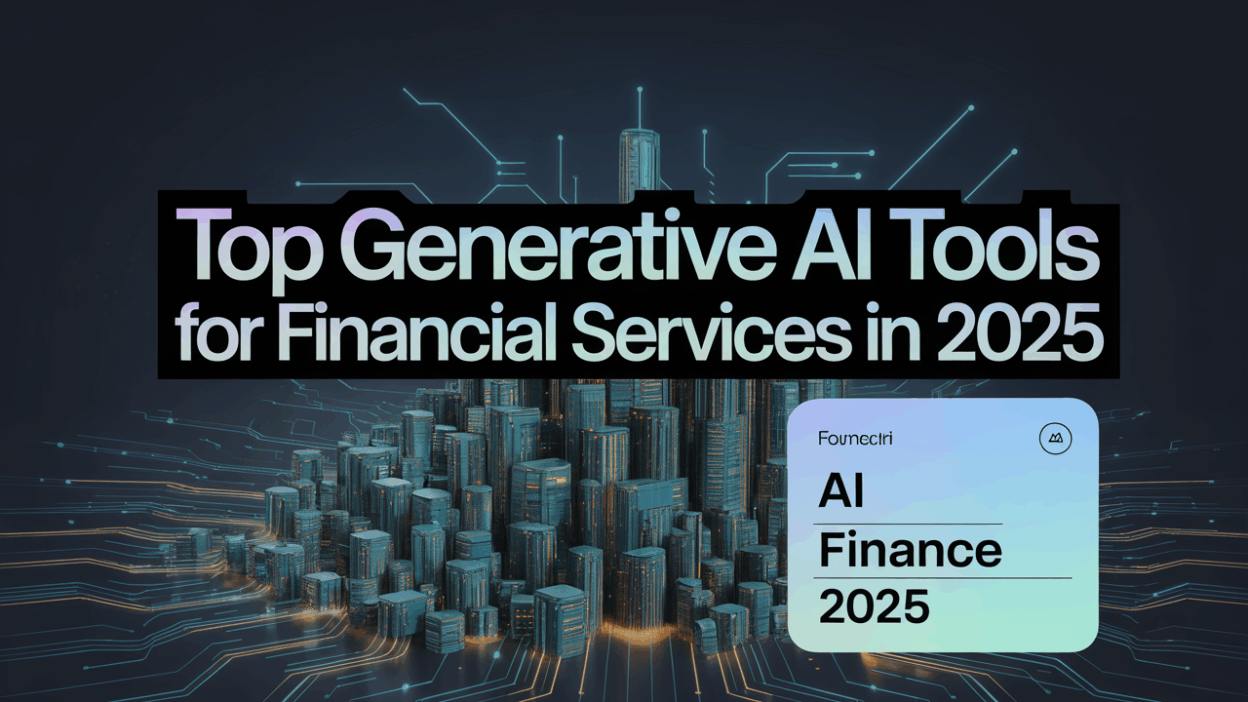In 2025, the financial services industry is undergoing a transformation driven by generative artificial intelligence (AI). These advanced tools are redefining how banks, fintech companies, and investment firms operate—automating processes, improving risk assessment, and delivering hyper-personalized services. With the global market for generative AI in financial services projected to reach $18.9 billion by 2025 , it’s clear that adoption is accelerating.
Below are some of the top generative AI tools making an impact in finance this year.
1. Arya.ai – AI for Financial Solutions
Arya.ai continues to be a standout player in the space, offering AI-driven solutions tailored specifically for financial institutions. Its capabilities include credit underwriting, fraud detection, and customer segmentation, enabling smarter, faster decision-making .
2. Zest AI – Proven AI for Credit Risk
Zest AI has solidified its position as a leader in AI-powered credit risk modeling. By analyzing complex datasets, it enhances loan approval accuracy while ensuring compliance with regulatory standards .
3. Harvey AI – Legal and Financial Document Automation
Harvey AI is gaining traction not only in legal circles but also within financial services, where it automates contract review, compliance documentation, and due diligence processes. This reduces manual workloads and accelerates deal closures .
4. BloombergGPT – Financial Language Model
BloombergGPT is a domain-specific language model trained on vast financial data. It supports tasks like report generation, sentiment analysis, and market forecasting, making it an invaluable tool for analysts and portfolio managers .
5. Cohere – Enterprise-Grade AI for Finance
Cohere’s generative AI platform offers powerful text generation and natural language understanding features. In finance, it’s being used for customer service automation, document summarization, and real-time trading insights .
6. Generative AI Startups Disrupting Fintech
Several startups are emerging as key players in the generative AI space. These companies are developing innovative tools for financial risk management, algorithmic trading, and personalized wealth advice .
7. E2E Networks – AI Infrastructure for Financial Applications
Beyond standalone tools, infrastructure providers like E2E Networks are enabling scalable deployment of generative AI models. Their cloud-based platforms support high-performance computing needs crucial for real-time financial analytics .
8. Tredence – AI-Powered Financial Insights
Tredence leverages generative AI to create predictive models that help financial institutions optimize operations, detect fraud, and personalize offerings .
Key Trends in Generative AI for Finance
Personalization remains a dominant trend, with AI enabling tailored investment strategies and customer experiences . Additionally, automation of repetitive tasks such as report writing, transaction monitoring, and regulatory filings is becoming standard practice .
Risk management and fraud detection are also benefiting from generative AI’s ability to simulate scenarios and detect anomalies in real time . As these tools evolve, they’re expected to drive even greater efficiency and innovation across the financial ecosystem.
Conclusion
As generative AI becomes more integrated into financial workflows, institutions that adopt these tools strategically will gain a competitive edge. From Arya.ai to Cohere and beyond, the landscape of AI in finance is dynamic and expanding rapidly. For banks, investors, and fintech startups alike, staying informed about these technologies is no longer optional—it’s essential .



